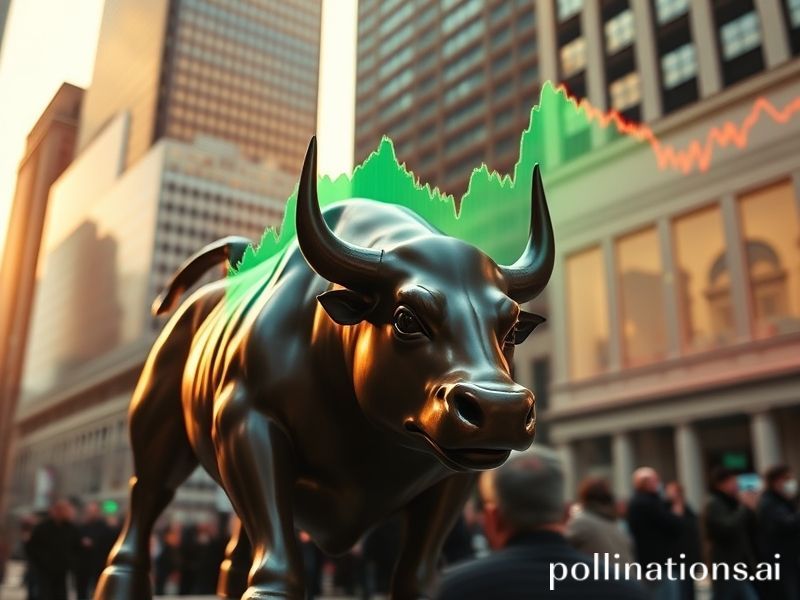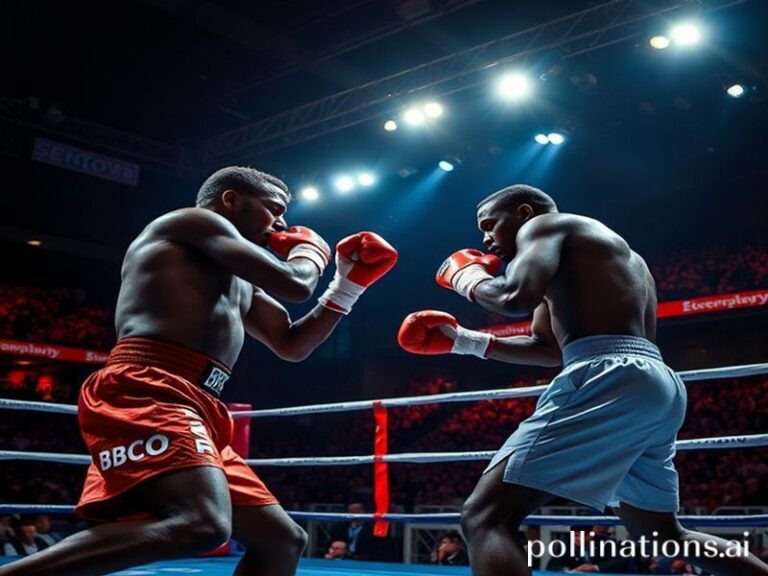S&P 500: How One American Stock Index Became the World’s Collective Delusion
S&P 500: The World’s Favorite American Soap Opera
By Our Correspondent in the Departures Lounge, Somewhere Between Frankfurt and Existential Dread
The S&P 500 closed at yet another all-time high last week, prompting champagne corks in Greenwich, polite golf claps in Geneva, and a low, guttural groan everywhere else. From the bodegas of Buenos Aires to the bitcoin mines of Sichuan, the index has become the planet’s de-facto mood ring: when it flashes green, global elites loosen their Hermès belts; when it turns crimson, emerging-market finance ministers start Googling “IMF phone number.”
In theory, the S&P 500 is just a basket of 503 large U.S. companies—Apple, Nvidia, Coca-Cola, the usual suspects. In practice, it is the financial equivalent of a Marvel cinematic universe: bloated, over-leveraged, and inexplicably beloved on every continent. Tokyo pension funds own it, Riyadh sovereign wealth funds own it, and your cousin in Manila who still owes you $40 owns it via a meme-stock ETF. The index has become America’s most successful cultural export since fast food and low expectations.
Consider Europe, where local bourses now move in lockstep with whatever Jerome Powell had for breakfast. German carmakers no longer worry about emissions scandals; they worry about whether Tesla will add or drop 3 percent before lunch. Italian banks, historically experts at losing money on their own soil, now lose it synthetically through S&P futures—progress, in a Renaissance sort of way.
Across the Global South, the index is both aspiration and affliction. Brazilian fintech founders dream of ringing the NYSE bell, preferably before the next currency crisis. Indian IT giants outsource their souls to the S&P’s tech weighting, praying that America’s AI bubble stays frothy long enough for stock-based bonuses to vest. Even the Central Bank of Kenya keeps a discreet slice in an S&P ETF, because nothing says monetary prudence like outsourcing your reserves to the same country that invented subprime mortgages.
China, ever the gracious host, allows mainland investors to trade S&P-linked products—while simultaneously lecturing Washington about financial sovereignty. The irony is not lost on anyone who has watched Beijing bail out its own property sector with the same enthusiasm that Americans pour into passive index funds. Both nations, in their own ways, are betting that the other one collapses second.
Of course, the S&P’s gravitational pull has side effects. Currency traders in Istanbul now set the lira’s fate by parsing Nvidia earnings calls. Copper miners in Chile hedge their entire fiscal year against a single tweet from Elon Musk. And somewhere in London, a hedge-fund quant has built an algorithm that buys the dip every time a Kardashian changes hair color, because correlation is the new causation.
The index also doubles as a geopolitical barometer. When Congress threatens to default on U.S. debt, global markets don’t yawn; they throw up in their mouths a little. When the Fed hints at “higher for longer,” European mortgage holders feel it in their variable-rate bones. And when Apple announces another stock buyback, Swiss pharmaceutical executives wonder why curing cancer can’t compete with repurchasing iPhones.
All of this might sound absurd, but absurdity is the market’s native language. The S&P 500 is no longer just a benchmark; it is a planetary feedback loop, amplifying American anxieties and exporting them in real time. If the index sneezes, the world catches a cold. If it parties, everyone wakes up with the hangover. And if it ever truly crashes, well, at least we’ll all go down together—diversified, passive, and faintly amused.
So as we hurtle toward the next earnings season, clutching our soy lattes and our leveraged ETFs, remember: the S&P 500 is not America’s report card. It’s the world’s shared delusion, neatly packaged into 503 tickers and wrapped in the flag of convenience we call modern capitalism. Buy the dip, or don’t. Either way, the closing bell rings for thee.







